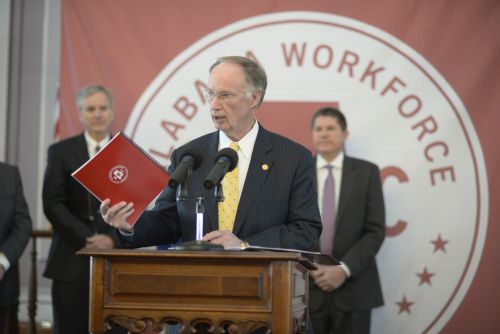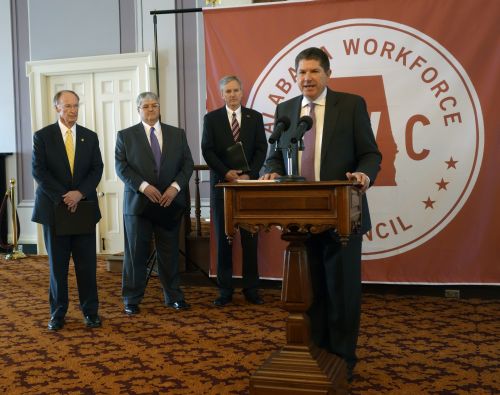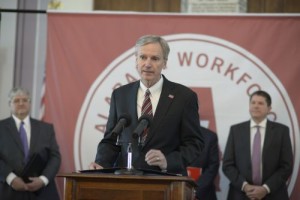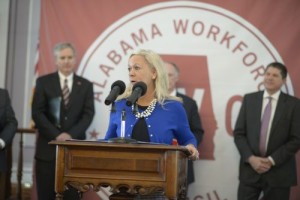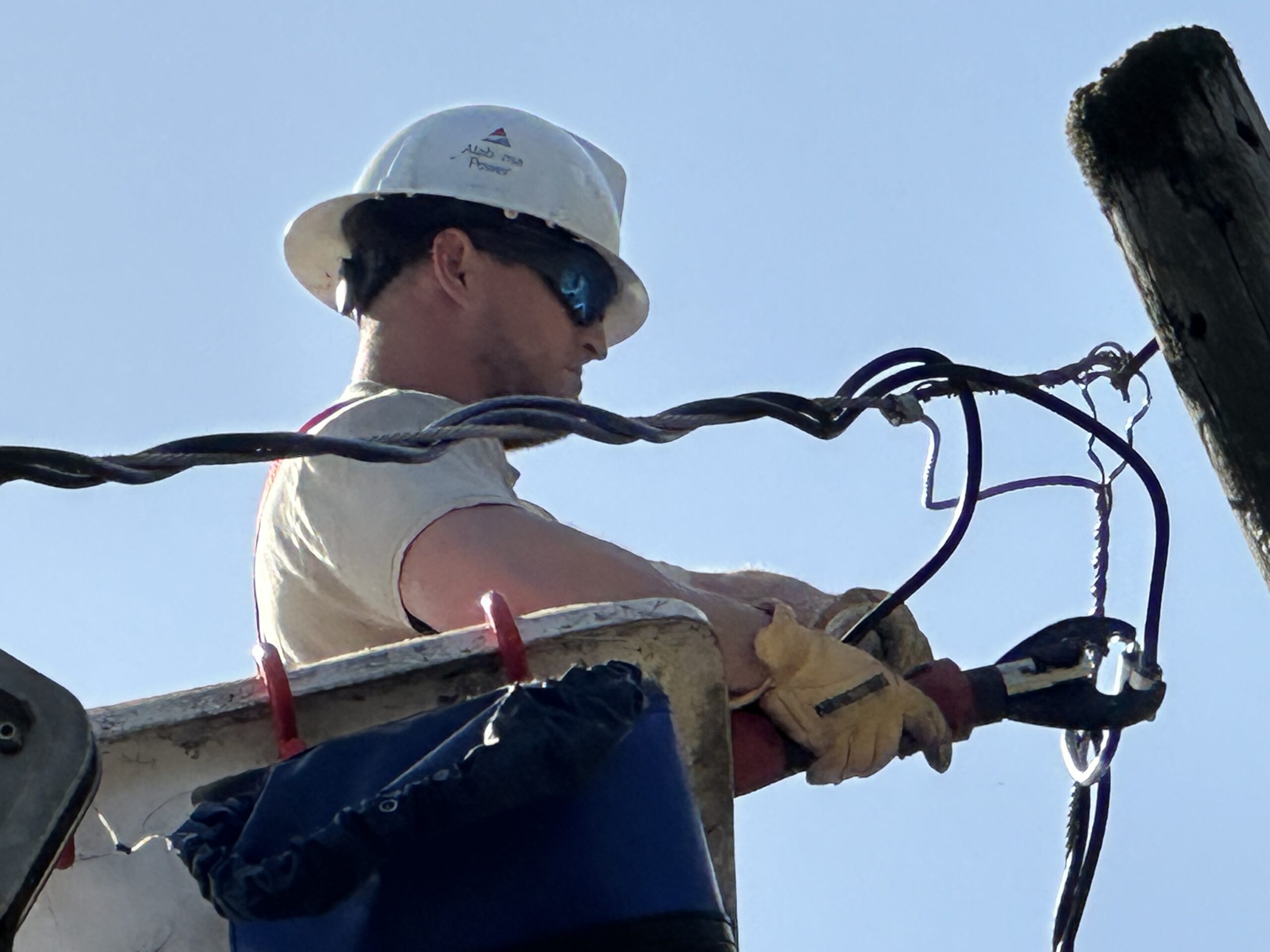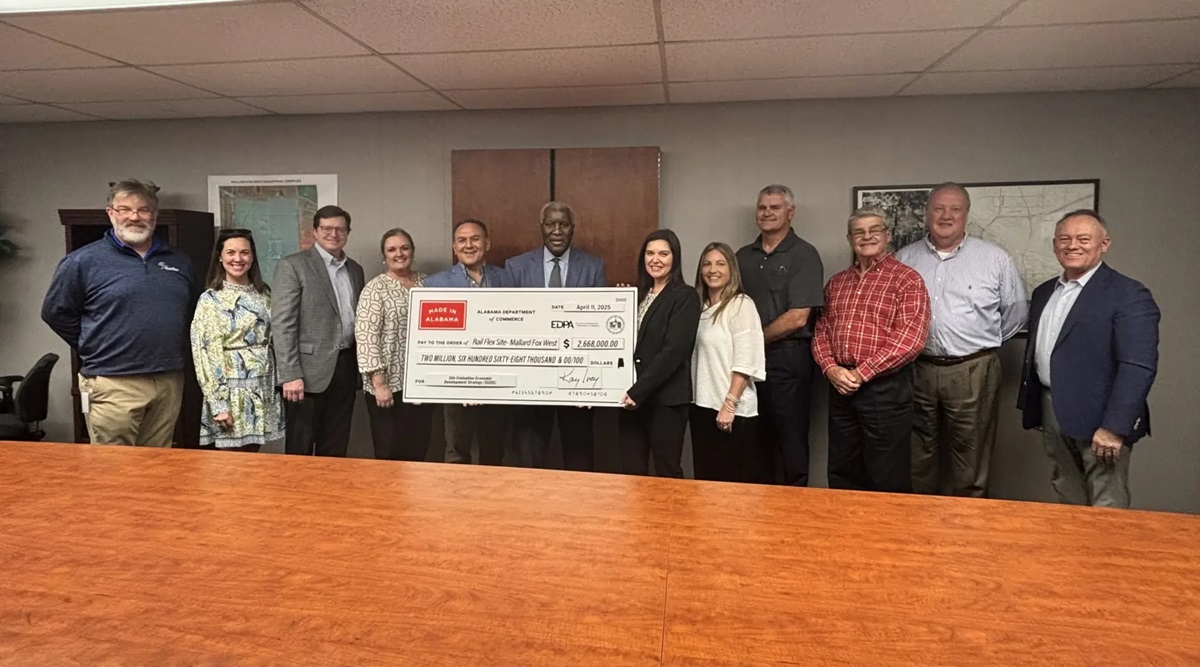Alabama Workforce Council presents first report to Gov. Bentley
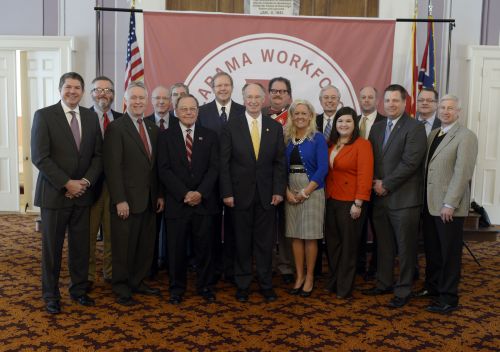
The Alabama Workforce Council presented recommendations and reforms to Gov. Robert Bentley that aim to address the challenges the state faces in providing skilled workers to fill a growing number of manufacturing and technical jobs.
Zeke Smith, council chairman and executive vice president of Alabama Power, presented the recommendations to Bentley Feb. 4.
“We’ve been on this journey for about six months, governor, with a lot of work, a lot of effort, a lot of questions, a lot of research that was done picking the brains of business and education experts all across the state of Alabama,” Smith said. “We’re excited today to deliver to you that which you really asked us to do and that was a responsibility to foster dialogue between business, industry and education to develop these recommendations.”
The report given to the governor follows four primary themes:
- Boost collaboration between education and industry at all levels;
- Market and promote to students and their parents the education and training opportunities and jobs available apart from traditional four-year college professions;
- Align various workforce initiatives in the state to make them more effective and efficient;
- Duplicate best practices of public-private partnerships where they can be effective in workforce development.
“With that in mind, governor, we want to present to you some recommendations today that we believe represent just the beginning because this council still has a lot of work to be done,” Smith said, adding he believes the initial recommendations “accomplish one mission: to improve educational outcomes and promote workforce and economic development for the state of Alabama.”
Bentley said he is pleased with the council’s work and is working within the executive branch to put the recommendations into practice.
“Zeke, I want to thank you and everyone who has worked so hard on this council. It has taken a lot of hard work, but you’ve taken it seriously,” Bentley said. “Now, the reason I think that you have taken it seriously is because you know the needs out there. Those of you in business and industry, you know what the needs are. Those of you in education, you took it seriously because you’re the ones who train and deliver the students who become part of our workforce in the state of Alabama.”
The governor said the council’s work has real value.
“When I have asked a task force to work and put hours and hours into an issue, I just don’t take this recommendation and put it on a shelf,” Bentley said. “We take this recommendation and we determine what we can use of that and then we put it into practice. There are actionable items already that are in here.”
Bentley said he met with representatives of a company looking at a site recently who expressed workforce concerns. Bentley told them the state is being proactive through the work of the Alabama Workforce Council.
“This is one of the most important things that we can do to bring industry into Alabama as far as our recruitment, to retain the companies that we already have in the state and help them grow, and then the third part – which is our third part of Accelerate Alabama – is to renew our economy by helping new companies be formed with ideas, entrepreneurship and innovation,” Bentley said. He said portions of the council’s findings will be rolled into an update of the state’s strategic economic development plan, known as Accelerate Alabama.
As the chancellor of the Alabama Community College System, Mark Heinrich is well aware of the workforce development needs in the state.
“One major challenge faced by both our state and the Alabama Community College System is delivering the essential highly-skilled, highly trained workforce to business and industry,” Heinrich said.
Jobs that require post-secondary education and training are still not being filled, he said.
“We’re just not attracting and educating the numbers necessary to sustain our workforce needs,” Heinrich said. “The council’s recommendations will align and strengthen all workforce functions in our state.”
Sandra Koblas, strategic recruitment manager for Austal USA in Mobile and a member of the Alabama Workforce Council, understands the challenges of finding skilled workers. Her company has had to fill 3,500 such jobs, many of them in the wake of the recent recession.
“I have to say that the Alabama Workforce Council is unique and most impressive because it is industry-led and it has a unified vision to gain the collaboration of all workforce development partners in the state of Alabama,” she said. “I realize it is going to allow us to ensure that all Alabama workers are prepared for those high-wage, high-demand jobs that are available at companies like Austal USA and many, many others.”
Tom Berryman, director of the Alabama Center for Automotive Excellence at Lawson State Community College, said he sees the need from the education and training side of the equation. His center has partnerships in place with General Motors, Ford and Toyota and works with others to provide highly trained workers.
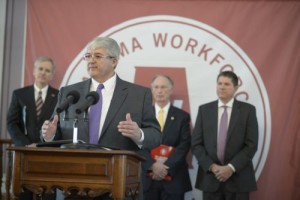
Tom Berryman is director of the Alabama Center for Automotive Excellence at Lawson State Community College.
“I have a huge demand for my students. I’m getting phone calls every single day from independent shops, dealerships – I got some yesterday from the automotive manufacturing plants – they’re looking for technicians,” Berryman said. “These are jobs that pay anywhere from $40,000 to $70,000 a year and we can’t fill them. They call me up and tell me, ‘We need one of your graduates.’ And my response is, ‘I can’t help you.’ I have over 100 students enrolled in our programs and every single one of them is locked into a sponsor already.”
Berryman said he is not alone, that other educators are doing all they can to provide as many trained workers as possible to try to satisfy the growing number of good-paying jobs.
“The two-year colleges are doing a great job, but we need more people,” he said.
Berryman cited statistics showing a large number of recent graduates from four-year colleges still unable to find good jobs while so many of the skilled and technical jobs are unfilled.
Koblas said she is pleased to see the Alabama Workforce Council being bold with its recommendations.
“The Alabama Workforce Council is aiming to achieve quantum change and not just incremental progress and I’m confident it will,” she said.
– Mike Tomberlin
